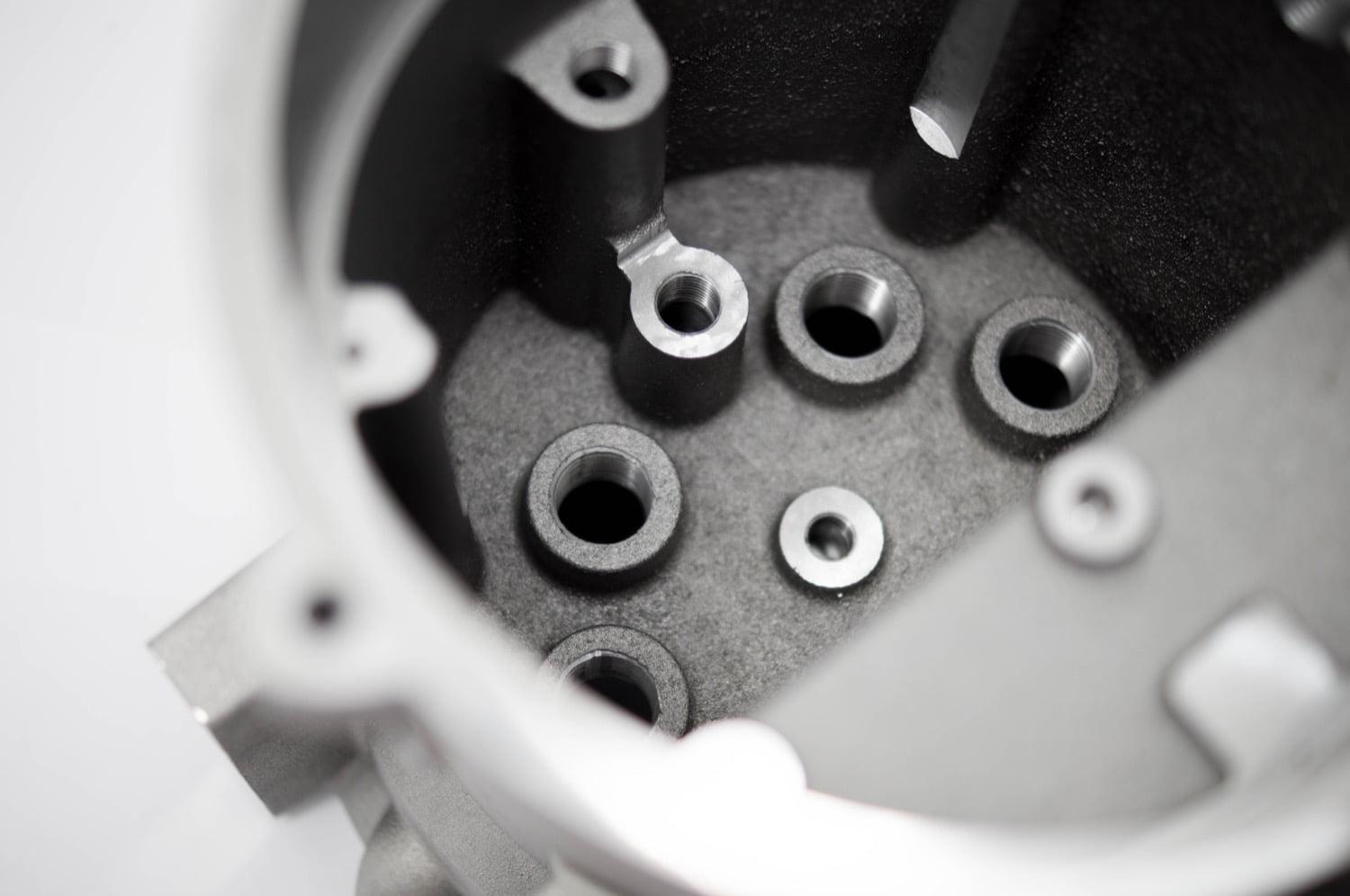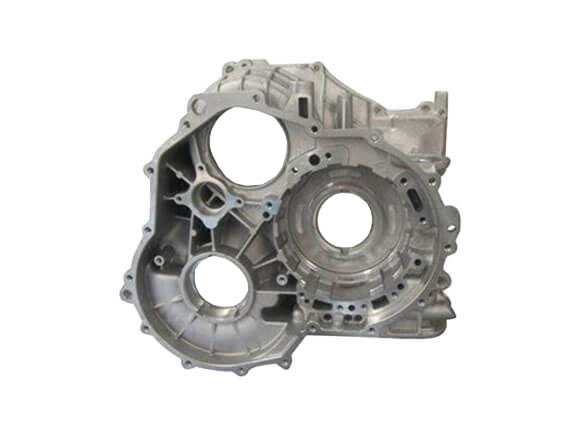Exploring how an Aluminum Foundry delivers cost-effective results
The Role of Light Weight Aluminum Foundries ahead of time Lightweight Production Solutions
Light weight aluminum shops considerably add to the advancement of lightweight production services. Their innovative casting technologies produce high-strength, light-weight parts important for industries such as vehicle and aerospace. This development not just enhances item performance however also promotes sustainability via making use of recycled products. As these shops adjust to emerging techniques and modern technologies, they lead the way for future growths in producing effectiveness and ecological obligation. What exists ahead in this transformative journey?
The Advantages of Lightweight Materials in Manufacturing
As sectors increasingly look for performance and sustainability, the adoption of light-weight materials in manufacturing has become a necessary approach - Precision aluminum casting. These products, particularly light weight aluminum and composites, offer countless advantages that improve manufacturing procedures and product efficiency. Largely, their minimized weight contributes to reduce energy intake throughout transport and operation, leading to considerable expense savings
Additionally, lightweight products assist in the layout of more facility geometries, enabling for better development in product development. This versatility frequently causes enhanced capability and performance, dealing with the developing needs of contemporary consumers.
Additionally, the use of light-weight materials can boost the durability of items because of their resistance to deterioration and fatigue. This sturdiness not just lowers maintenance prices yet also supports sustainability initiatives, as longer-lasting products add to much less waste. To sum up, the benefits of light-weight materials are crucial in driving efficiency, development, and environmental responsibility in manufacturing.
Advancements in Light Weight Aluminum Spreading Technologies
Current improvements in light weight aluminum casting modern technologies are revolutionizing the production landscape, specifically in the manufacturing of light-weight parts. Innovations such as high-pressure die casting and vacuum cleaner pass away spreading have actually substantially improved the accuracy and surface area coating of light weight aluminum components - Aluminum Casting Company. These approaches enable for the creation of complex geometries while reducing material waste and boosting mechanical residential properties

Additionally, the execution of real-time surveillance systems guarantees quality assurance throughout the casting procedure, leading to even more regular product results. Collectively, these developments not only improve the efficiency of light weight aluminum components however likewise sustain the sector's shift in the direction of more lasting manufacturing techniques.
Applications of Aluminum Elements in Various Industries
While aluminum components have actually long been utilized in numerous sectors, their versatility and lightweight residential or commercial properties proceed to drive innovative applications across fields such as automotive, aerospace, and construction. In the automotive sector, light weight aluminum is significantly utilized for engine blocks, wheels, and body panels, enhancing gas efficiency and performance. Aerospace suppliers utilize light weight aluminum for airplane structures and components, profiting from its strength-to-weight ratio to improve fuel economic situation and payload ability.
In the construction industry, light weight aluminum is favored for window structures, roof covering, and architectural elements, providing resilience and resistance to deterioration while reducing overall structure weight. Furthermore, the electrical and electronic devices markets gain from light weight aluminum's conductivity and lightweight nature, utilizing it in wiring, rooms, and warmth sinks. These varied applications highlight the crucial duty of light weight aluminum components, which not just satisfy industry needs yet likewise contribute to innovations in item style and performance throughout numerous fields.
Sustainability and Power Efficiency in Light Weight Aluminum Foundries
The aluminum factory industry plays a crucial role in advertising sustainability and power effectiveness, specifically as need for lightweight elements proceeds to grow across different sectors. Foundries are significantly adopting eco friendly methods, such as utilizing recycled aluminum, which substantially decreases power usage and greenhouse gas exhausts contrasted to primary light weight aluminum production.
Advancements in casting innovations enhance energy performance by maximizing the melting procedures and lowering waste. Techniques like die casting and financial investment spreading enable exact material usage, lessening excess and scrap.
In addition, many shops are buying sustainable power sources to power operations, additionally lowering their carbon footprint. Applying power administration systems allows factories to keep an eye on and boost energy usage, guaranteeing they run at peak efficiency.

Future Fads in Lightweight Manufacturing Solutions
Just how will emerging modern technologies shape the future of light-weight production services? Developments such as advanced products, automation, and additive manufacturing are set to redefine production processes. The assimilation of smart manufacturing modern technologies, including the Web of Points (IoT) and man-made intelligence (AI), will enable real-time surveillance and optimization, boosting efficiency and lowering waste.

As sustainability remains to be an extremely important problem, light-weight solutions will increasingly concentrate on reusing and reusing materials, straightening with round economy concepts. This development in light-weight manufacturing will not only enhance product efficiency yet also add to ecological objectives, guaranteeing that the sector stays affordable in a quickly altering market landscape.
Often Asked Inquiries
Just How Do Light Weight Aluminum Foundries Make Sure Quality Control in Production?
Light weight aluminum shops assure quality control in manufacturing through extensive screening, standard treatments, and continuous surveillance - Precision aluminum casting. They apply sophisticated technologies and knowledgeable workers to maintain uniformity, decrease flaws, and meet sector standards throughout the production process
What Are the Key Challenges Encountered by Light Weight Aluminum Foundries?
Aluminum factories encounter obstacles such as varying raw product prices, keeping manufacturing performance, ensuring constant high quality, adjusting to technical developments, and conference ecological guidelines, every one of which impact their overall functional effectiveness and competition out there.
Just How Does Light Weight Aluminum Recycling Effect Shop Operations?
Aluminum recycling considerably improves factory operations by minimizing resources prices, minimizing energy usage, and reducing ecological effect. This sustainable method enables shops to boost performance while satisfying increasing demand for light-weight, high-performance aluminum items.
What Abilities Are Needed for Employees in Light Weight Aluminum Foundries?
Workers in aluminum factories need skills in metallurgy, machining, quality assurance, and security methods. Proficiency in operating machinery, understanding alloy buildings, and analytic are likewise important for efficient production and keeping high security criteria.
Just How Do Light Weight Aluminum Foundries Deal With Waste Management?
Aluminum shops take care of waste via recycling scrap steel, making use of effective waste segregation methods, and sticking to ecological guidelines. They execute lasting methods to minimize landfill payments, ensuring that unsafe materials are dealt with sensibly.
Aluminum foundries significantly add to the development of light-weight production options. Recent innovations in aluminum casting technologies are changing the manufacturing landscape, specifically in the production of lightweight parts. While aluminum elements have actually long been used in different markets, their convenience here and lightweight homes proceed to drive innovative applications across fields such as auto, aerospace, and building and construction. Additionally, the electrical and electronics industries profit from light weight aluminum's conductivity and lightweight nature, using it in electrical wiring, enclosures, and warmth sinks. The light weight aluminum shop industry plays a crucial role in promoting sustainability and power effectiveness, specifically as demand for lightweight parts proceeds to expand across different sectors.